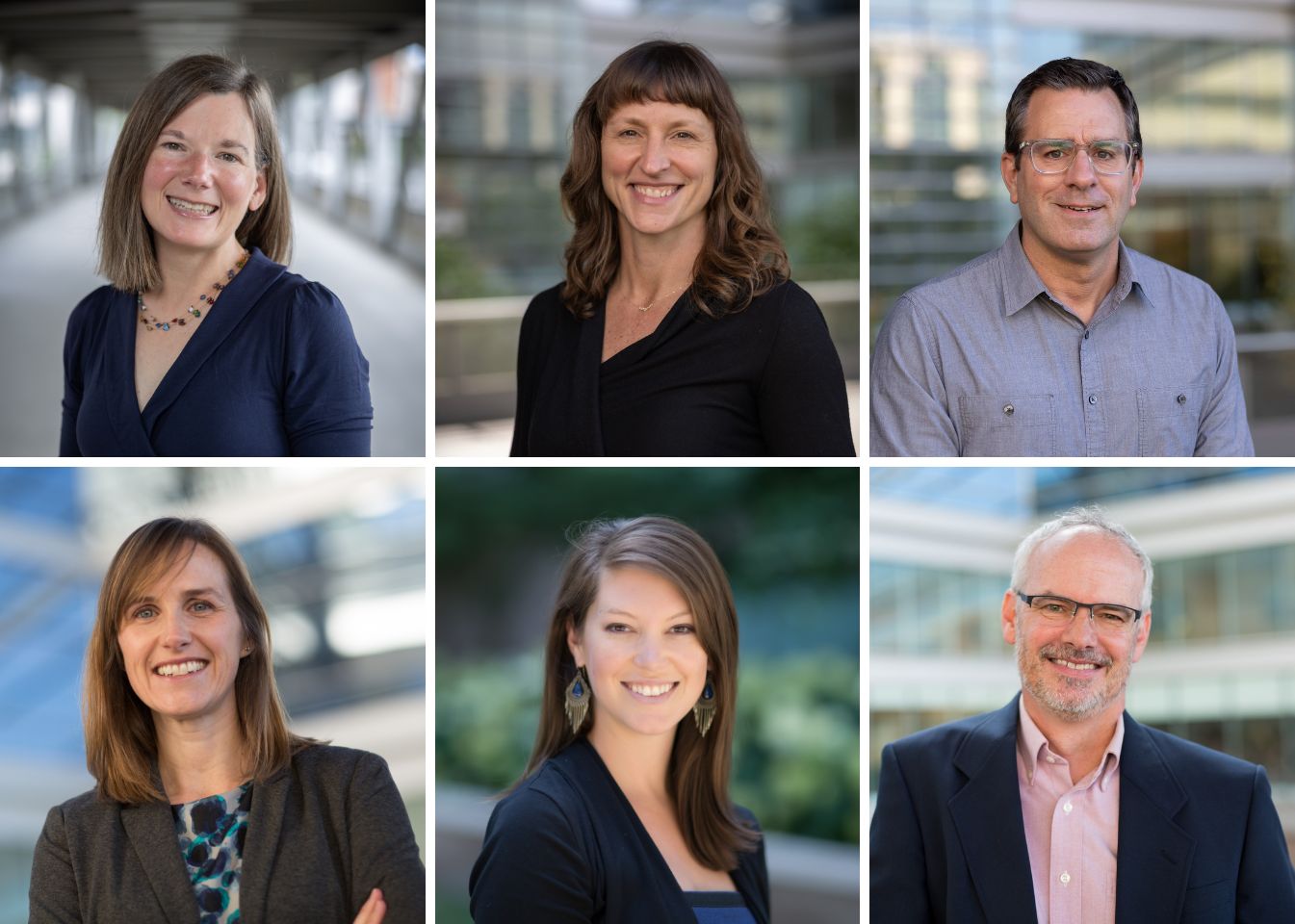The American Cancer Society has awarded a five-year, $1.2 million Team Science grant to a group of UNC Lineberger researchers that will develop new methods to measure and map cancer screening across North Carolina.

Bottom row: Louise Henderson, PhD; Stephanie Wheeler, PhD, MPH; and Dan Reuland, MD, MPH.
Katherine Reeder-Hayes, MD, MSc, MBA, is the study’s lead principal investigator, and Jenny Lund, PhD, and Christopher Baggett, PhD, are the team principal investigators. The three faculty members co-direct the UNC Lineberger Cancer Information & Population Health Resource (CIPHR).
Other research team members include Louise Henderson, PhD, Stephanie Wheeler, PhD, MPH, Dan Reuland, MD, MPH, and Arrianna Planey, PhD, MA, as well as Brian Reich, PhD, from NC State University, and CIPHR staff.
The grant will fund research designed to facilitate more widespread cancer screening and early detection culminating in reduced cancer mortality. Specifically, the researchers will use data from CIPHR to create new tools based on insurance claims that more efficiently measure and compare cancer screening use across small geographic areas and people groups.
They also will work with community partners to transform these data into formats that are useful for a variety of audiences, including data visualizations and simulation models showing the potential effects of increased screening in certain geographic areas, for specific cancers and particular patient groups where screening is underused. Currently, cancer screening in the United States is tracked primarily using telephone surveys, which are expensive, time-consuming and miss many geographic areas.
“The existence of a cancer screening test in itself doesn’t save anyone’s life,” said Reeder-Hayes, associate professor of medicine and section chief of breast oncology at UNC School of Medicine. “Early detection of cancer in people at highest risk, followed by prompt and appropriate treatment, are the steps that actually lead to less expensive, less difficult, and more life-saving cancer treatment. For breast, colorectal and lung cancers, early detection through cancer screening absolutely saves lives, but we can’t use it effectively unless we know where we have gaps and focus our intervention efforts to those high-reward areas. Without detailed information about where and when screening is happening, we’re blind as to where the problems are and how to solve them.”
Screening tests can help detect cancer at an early stage, improving the chances that treatment will be more effective, less burdensome and increasing the chance of a person’s survival. Despite these benefits, Reeder-Hayes said Black Americans are often less likely to undergo cancer screening, and this disparity contributes to the longstanding disparities in the stage at diagnosis and survival of cancer for Black people. Racial differences in cancer screening patterns will be a focus for the research team.
“The goal of our research is to develop efficient, low-cost methods that policy makers and health workers in any state could use to map cancer screening use across their state, understand where it is lacking, and work with those communities to change that map. Everyone deserves the opportunity to have their cancer caught early, to access the treatments that are right for them, and to be able to say that they are a cancer survivor,” Reeder-Hayes said.
